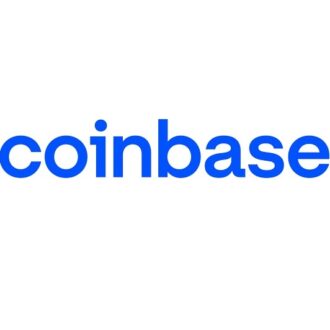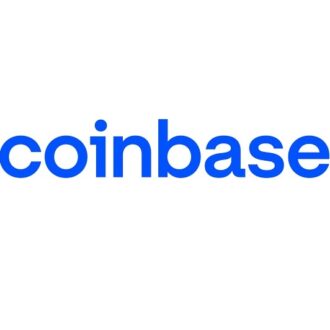Coinbase vs. Kraken: Comparing Fees, Features, and More
Coinbase vs. Kraken is a comparison of two leading cryptocurrency exchanges popular among traders worldwide. Both offer secure platforms to buy, sell, and trade digital assets with strong regulatory compliance. Both crypto trading platforms also focus on keeping your funds secure, using advanced methods to protect your crypto.
The best features of Coinbase are buying crypto with fiat using various payment methods, staking services, Coinbase Wallet, Coinbase Commerce, and Coinbase Visa Card. The best features of Kraken are advanced order types, 50x leverage futures trading, margin trading, DeFi services, and a wide selection of coins.
This Coinbase vs. Kraken comparison will cover the key features of both exchanges, available cryptocurrencies, and differences in staking and earn programs. We will also compare their various fee types and security levels. Finally, we will discuss how Kraken is better than Coinbase and vice versa.
Coinbase vs. Kraken: Detailed Comparison
Coinbase is mainly best due to a beginner-friendly interface and strong regulatory compliance, while Kraken provides more advanced trading tools and supports around 420 cryptocurrencies. Kraken’s staking rewards are quite high, but Coinbase has a more curated coin selection for staking.
Here is a detailed comparison table:
| Coinbase | Kraken | |
| User Interface | Beginner-friendly | Advanced tools |
| Supported Cryptocurrencies | 200+ | 420+ |
| Trading Fees (Maker/Taker) | 0.40%/0.60% | 0.25%/0.40% |
| Deposit Fees (USD) | Free ACH, $10 Wire | Free ACH, Free Wire (via FedWire/Dart Bank) |
| Withdrawal Fees (USD) | Free ACH, $25 Wire | Free ACH, $4-$30 Wire (varies by bank) |
| Withdrawal Limits (USD) | $100,000/day (ACH/Fedwire), $10M/day (SWIFT) | $500,000/day (Intermediate KYC users), $10M+/day (Pro users) |
| Staking | Yes | Yes |
| Leverage (Futures) | Up to 10x, limited coins | Up to 50x, broader coin selection |
| Security Measures | 98% cold storage, multi-sig, FDIC insurance ($250,000 USD), 2FA | 95% cold storage, air-gapped, ISO/IEC 27001:2013, 2FA, Global Settings Lock |
| Additional Features | Coinbase Wallet, Coinbase Card, Coinbase Commerce, Learn and Earn | Kraken Pro, Kraken Desktop, margin trading, advanced order types |
Create your Coinbase account now and start buying top cryptocurrencies with easy payment options and full regulatory support in minutes.
What Are the Key Features of Coinbase vs. Kraken?
The key features of Coinbase include its extremely user-friendly interface for easy crypto purchasing with various fiat methods like ACH and debit cards, strong regulatory compliance as a publicly traded company, a comprehensive ecosystem with Coinbase Wallet, Coinbase Card, Coinbase Commerce, and staking, plus advanced trading options on Coinbase Advanced.
Meanwhile, the best features of Kraken are advanced trading tools, higher leverage (up to 50x) for futures trading, margin trading, and high security measures.
What Are the Main Differences in Earning and Staking on Kraken vs. Coinbase?
Kraken generally offers higher staking rewards than Coinbase. But, they support fewer cryptocurrencies for staking. You can choose between “flexible” staking, where you can unstake your crypto anytime, or “bonded” staking to earn higher rewards, but it will lock up your crypto for a specific time. So, if you’re looking to get potentially bigger returns, Kraken might be the best option for you. They pay out staking rewards pretty often, sometimes even twice a week.
Coinbase, on the other hand, is known for being super easy to use, especially for beginners. While their staking rewards might be a bit lower compared to Kraken, the process is very straightforward. They also offer a feature called “Coinbase Learn and Earn”. This is where you can watch short videos and take quizzes to earn small amounts of cryptocurrency. Coinbase also allows you to unstake your crypto at any time, although some assets may have a short waiting period before they can be used again.
Also, remember, both platforms take a commission from the staking rewards you earn. On Kraken, their commission is typically around 20% of the rewards you earn. And this 20% commission part applies to both flexible staking and bonded staking programs.
Now, about Coinbase, their commission tends to be a bit higher. Coinbase generally takes a commission of 25% to 35% of the rewards you receive. For some popular coins like Ethereum (ETH), Cardano (ADA), Polkadot (DOT), Solana (SOL), and Tezos (XTZ), their standard commission is around 35%. However, if you are a Coinbase One member, you will pay a slightly lower commission, around 26%.
What Are the Available Cryptocurrencies of Coinbase vs. Kraken?
Kraken has over 420 cryptocurrencies available for trading. The exchange generally lists a lot of different coins, including many that are smaller or newer projects, alongside all the big ones, well-known ones like Bitcoin (BTC) and Ethereum (ETH). So, if you’re someone who really likes to explore and invest in a range of altcoins (not only high market cap), Kraken is better than Coinbase. They’re pretty good about adding new assets, so you’ll find hundreds of different options there.
Coinbase, while it has expanded its listings a lot over the years, generally focuses on a more curated selection. They have 200+ cryptocurrencies, like Bitcoin, Ethereum, Solana, Cardano, XRP, and so on. They also add new coins, but typically, they go through a more rigorous review process before listing, and this means they might not have as many niche or brand-new coins as Kraken, but the ones they do list often have more established track records.
How Does the User-Friendliness of Coinbase Compare to Kraken?
Coinbase is well-known for being extremely beginner-friendly. Their site and mobile app both have a very clean, simple interface that’s easy to navigate, even if you’ve never traded cryptocurrencies before. It’s quite similar to using a normal banking app. The entire sign-up process, linking to your bank, and making your first crypto purchase is incredibly easy.
They also offer useful educational tools such as “Coinbase Learn and Earn,” where you can gain knowledge on various cryptocurrencies and earn a small amount of free cryptocurrency in exchange. For a beginner, we recommend that Coinbase is very user-friendly and easy to use.
Kraken, however, is typically regarded as more of an advanced trader’s platform. Though they’ve attempted to streamline their user interface and do offer a “simple” mode, it feels more technically inclined than Coinbase. Kraken provides more sophisticated trading tools, such as margin trading, futures, and multiple order types, which can be intimidating to a new user.
They actually offer two primary platforms: the normal Kraken platform and “Kraken Pro”. Kraken Pro is tailor-made for professional traders with more advanced charting and tools. So, if you’re not familiar with trading platforms with a ton of data and options, Kraken may have a slightly steeper learning curve.
Open an account with Coinbase to get comprehensive regulatory support, simple payment choices, and instant access to leading cryptocurrencies.
How Do the NFT Offerings Compare Between Kraken and Coinbase?
Kraken already shut down its NFT marketplace due to low user activity. This decision was announced in November 2024. The Kraken NFT marketplace entered a “withdrawal-only” mode, which means you could no longer list, buy, bid on, or sell NFTs through their platform after that date.
Coinbase has an NFT marketplace, and true to their style, they designed it with user-friendliness in mind, especially for newcomers to NFTs. Their goal is to make the experience of buying, selling, and even minting NFTs as easy as possible, similar to how they simplified buying crypto.
Coinbase NFT is mostly focused on NFTs that are created on the Ethereum blockchain (ERC-721 and ERC-1155 tokens), but it will expand its blockchain support in the future. Also, Coinbase wants to become a “Web3 social marketplace”. This means Coinbase wants to help creators and collectors connect and build communities with features like user profiles, comment sections, and the ability to follow other users.
What Are the Fees of Coinbase vs. Kraken?
The fees of Coinbase are 0.4% for makers and 0.6% for takers, whereas Kraken charges 0.25% for makers and 0.4% for takers. Let’s compare their trading fees, deposit and withdrawal fees, and withdrawal limits in detail.
Coinbase vs. Kraken Trading Fees
Coinbase and Kraken use a maker-taker fee model for their advanced trading platforms. That is, you need to pay varying fees whether your order “adds liquidity” to the market (a maker order, often a limit order that does not execute immediately) or “takes liquidity” from the market (a taker order, often a market order that does execute immediately). And, these fees are usually charged based on your 30-day trading volume.
Here’s a comparison of their spot trading fee schedules (both exchanges have different trading volume on their VIP levels):
| Level | Kraken Pro Maker Fee | Kraken Pro Taker Fee | Coinbase Maker Fee | Coinbase Taker Fee |
| Regular User | 0.25% | 0.40% | 0.40% | 0.60% |
| VIP 1 | 0.20% | 0.35% | 0.25% | 0.40% |
| VIP 2 | 0.14% | 0.24% | 0.15% | 0.25% |
| VIP 3 | 0.12% | 0.22% | 0.10% | 0.20% |
Looking at this table, Kraken Pro generally offers slightly lower maker and taker fees at the lower to mid-tier trading volumes.
Now, let’s talk about futures trading fees. Kraken has a dedicated platform for futures trading called Kraken Futures. This platform offers perpetual and fixed-maturity futures contracts for various cryptocurrencies. And just like with spot trading, Kraken Futures uses a maker-taker fee model that’s based on your 30-day trading volume. The basic Kraken Futures fees are 0.02% maker and 0.05% taker.
Coinbase’s involvement in futures trading is a bit more nuanced. Initially, Coinbase focused more on spot trading and services, but they have expanded into derivatives, primarily through Coinbase International Exchange and Coinbase Financial Markets. Coinbase Futures fees are 0.02% maker and 0.04% taker, which is lower than Kraken’s, but its futures trading is not available outside the U.S.
Coinbase vs. Kraken Deposit and Withdrawal Fees
| Method | Coinbase (USD) | Kraken (USD) |
| ACH Deposit | Free | Free |
| ACH Withdrawal | Free | Free |
| Wire Deposit | $10 | Free (via FedWire – Dart Bank/Etana Connect) |
| Wire Withdrawal | $25 | Fees vary depending on the bank (e.g., $4 for Customers Bank/Dart Bank, $30 for Etana Connect) |
| Crypto Withdrawal | Dynamic | Dynamic |
For USD fiat deposits and withdrawals, both exchanges provide free ACH deposits and withdrawals, which is perfect for US-based regular users.
For wire transfers, Kraken also appears to have more free deposit methods (such as FedWire for US users) and lower SWIFT transfer withdrawal fees than Coinbase’s flat $10 deposit and $25 wire transfer withdrawal fee. This could make Kraken slightly better than Coinbase for users who constantly use wire transfers.
Also, cryptocurrency withdrawal fees on both platforms are not fixed percentages but rather are dynamic and vary based on the specific cryptocurrency and current network congestion (miner fees).
Coinbase vs. Kraken Withdrawal Limits
For Coinbase, fiat (regular money) withdrawal limits vary by currency and method. If you’re using EUR SEPA, you can withdraw up to €100,000 daily. For USD via Fedwire or ACH, the daily limit is typically $100,000. If you’re using USD SWIFT International Wires, that limit jumps significantly to $10,000,000 per day.
Also, Coinbase generally doesn’t cap how much crypto you can sell into your cash balance; your ability to withdraw that cash depends only on your chosen method and verification level.
Kraken’s withdrawal limits are set based on your verification level. For cryptocurrency withdrawals, an Intermediate account can move up to $500,000 daily and $15,000,000 monthly. Pro accounts get even higher limits, with over $10,000,000 daily and essentially unlimited monthly withdrawals, though you can request increases for both fiat and crypto if needed.
Coinbase vs. Kraken Spread Fees
Coinbase has a wider spread compared to Kraken. On average, Coinbase charges around a 0.5% to 1% spread on trades, depending on the asset and market conditions. Kraken has lower spreads, usually up to 0.3%, especially on its instant buy/sell services.
What Are the Security Levels of Coinbase vs. Kraken?
Let’s discuss Coinbase’s security measures. First of all, the majority of your cryptocurrency, around 98% of it, is stored offline in cold wallets. This makes it extremely difficult for someone to hack into and steal it online. In addition to that, if the transaction needs to be transferred, it requires several “keys” to approve it. This is called the multi-sig approach.
For your everyday transfers (such as US dollars), Coinbase holds your USD separate from the funds they use to operate their business. Additionally, your US dollar balances in connected bank accounts are insured by FDIC insurance, similar to the traditional bank insurance, up to $250,000.
For your own account, you will always have to use Two-Factor Authentication (2FA) whenever you log in or perform withdrawal actions. This involves using an authentication app on your phone or a security key, which is far more secure than receiving a code via text on your phone.
Kraken also has a very strong focus on security, especially from a technical side. Like Coinbase, Kraken keeps the majority of its customers’ crypto offline in air-gapped cold storage. This makes it completely isolated from the internet, so it’s extremely secure. These storage sites are also well protected, with security and surveillance around the clock.
Another very significant thing about Kraken is that they don’t allow you to restore your account based just on a text message to your mobile. This also guards you against an attack called a SIM swap attack, where an attacker hijacks your phone number.
Kraken has other security certificates, such as ISO/IEC 27001:2013, which essentially implies that third-party experts reviewed their security and assured it complies with high international standards. They even have advanced features like Global Settings Lock (GSL), which can temporarily prevent anyone from modifying your account information or withdrawal addresses, even if a hacker accessed your account. A Master Key can also add another layer of protection in case your email or primary 2FA is compromised.
Overall, both Kraken and Coinbase are highly secure and regulated crypto exchanges. Kraken has never experienced a major security breach since its launch. But, Coinbase has faced several incidents, mostly involving customer email leaks and phishing risks, not direct theft from the platform.
Coinbase or Kraken: Is Kraken Better Than Coinbase?
Kraken is better in terms of advanced trading tools, offering a robust Kraken Pro platform with many order types and higher leverage for futures trading. However, Coinbase is better due to its user-friendliness for beginners, many fiat on-ramps with various payment methods, and its strong regulatory compliance.
Who Is Coinbase Best For?
Coinbase is best for those who want to easily buy crypto with various fiat payment methods, prefer a highly regulated and publicly traded crypto platform, and seek a wide range of additional crypto services beyond basic exchange functions.
- People who want to easily buy crypto with fiat currencies: In the US, you can easily buy crypto using bank transfers (ACH), debit cards, wire transfers, and even through services like PayPal. If you’re in Europe, you can use SEPA transfers, and in the UK, Faster Payments are available.
- People who want a regulated crypto platform: Coinbase is a publicly traded company listed on the NASDAQ stock exchange under the ticker symbol COIN. Also, it holds other important licenses and complies with major financial regulations. To be exact, in the US, it’s registered with the Financial Crimes Enforcement Network (FinCEN) and has money transmission licenses in most states. It was also one of the first companies to obtain a BitLicense from the New York Department of Financial Services.
- People who want additional services beyond just buying and selling crypto: Coinbase has a whole ecosystem of products for various crypto needs. It offers self-custody with Coinbase Wallet. There is a Coinbase One. This is a paid membership that offers benefits like zero trading fees, boosted staking rewards, and even a personal customer support manager. Also, they have the Coinbase Visa Card to spend crypto with your cash. And, for businesses, it offers Coinbase Commerce to accept cryptocurrency payments easily. Beyond that, they even have Coinbase Prime for institutional clients. Also, you can read our in-depth Coinbase review for more info.
Join Coinbase to access a wide range of digital assets, seamless fiat deposits, and strong security trusted by millions worldwide.
How to Transfer Crypto From Coinbase to Kraken?
Transferring crypto from Coinbase to Kraken is a pretty straightforward process. First, you’ll open your Kraken account and navigate to the deposit section for the specific cryptocurrency you want to move. Kraken will give you a unique deposit address (and sometimes a memo or tag, depending on the coin).
You’ll then go to your Coinbase account, find the cryptocurrency you wish to send, and initiate a withdrawal. Crucially, you’ll paste the deposit address from Kraken directly into Coinbase’s send field. Double-check that the crypto you’re sending matches the address type and, if applicable, that the correct network is chosen on both ends to avoid losing funds. Confirm the transaction, and the crypto will typically appear in your Kraken account after a few network confirmations. As a new user, if you are still looking to create an account on Coinbase, you can use our Coinbase referral code to get a free sign-up bonus.
Who Is Kraken Best For?
Kraken is best for those who want advanced trading features, desire access to a large number of supported cryptocurrencies, and are interested in trading futures with higher leverage.
- People who want advanced trading tools: Kraken offers an advanced platform called Kraken Pro. This platform is mainly designed for experienced traders and gives you access to sophisticated tools like advanced order types (limit orders, stop-loss orders, take-profit orders, and more complex strategies). You will also get customizable charting features and in-depth market data. They even have Kraken Desktop, a special application for your computer that lets you build and customize your trading workspace. Here is our detailed Kraken review for more info.
- People who want a large number of supported coins: Kraken is known for its wide selection of cryptocurrencies. They support over 420 different cryptocurrencies that you can trade. Hence, this good variety means you’re likely to find both popular coins like Bitcoin and Ethereum, as well as many smaller, newer, or more niche altcoins.
- People who want to trade futures with higher leverage: Kraken offers futures trading on its Kraken Futures platform. It offers up to 50x leverage on various crypto perpetual futures contracts. This is way better than Coinbase’s futures platform with limited coins and only 10x leverage.
Is Kraken Legal in the US?
Yes, Kraken is legal and operates in a majority of states within the United States. Most importantly, it’s an American cryptocurrency exchange founded in 2011 and is registered as a Money Services Business (MSB) with FinCEN.
But Kraken does not provide services to New York (NY), Washington state (WA), and Maine (ME) residents due to state-based regulations. Though available in the other 47 states in general, certain specific services, such as staking or derivatives trading, may have other state-level limitations.
Is Kraken the Best Crypto Exchange?
No, Kraken is not the best crypto exchange, especially for beginners. Kraken is definitely a solid choice if you’re an experienced trader looking for advanced tools, more complex order types, and access to a wide range of cryptocurrencies. However, for complete beginners just starting out, it might feel a bit overwhelming compared to simpler platforms. It also doesn’t offer services in a few US states, and its NFT marketplace recently shut down, which might be a downside for some users.
Create a Coinbase account today and buy leading cryptocurrencies with simple payment methods and complete regulatory support in minutes.
The post Coinbase vs. Kraken: Comparing Fees, Features, and More appeared first on CryptoNinjas.
CryptoNinjas






















